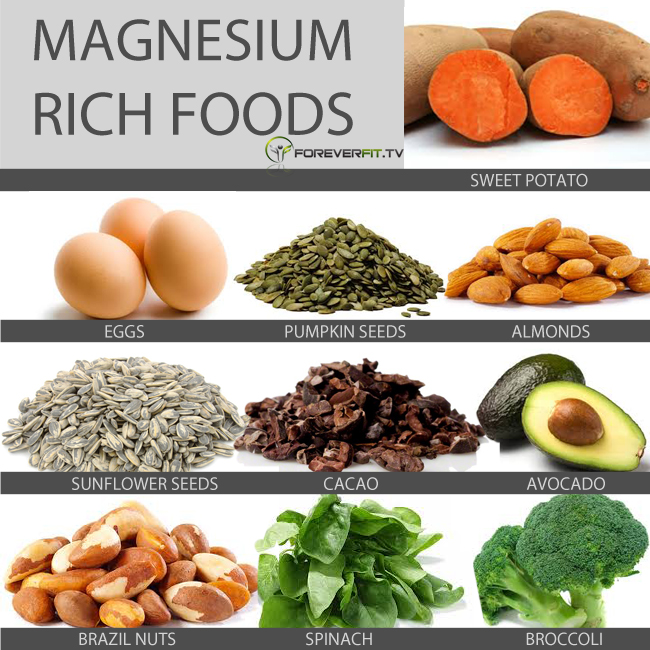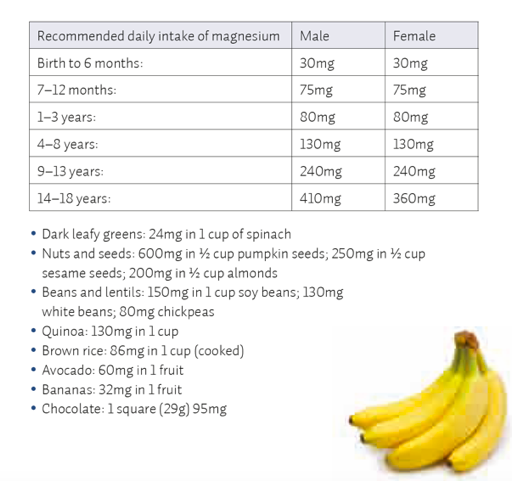The Importance of Magnesium
Mindd Foundation

Paediatrician Dr Leila Mason on the importance of Magnesium (Mg).
Up to 60% of Australians, Americans and Europeans are deficient in Magnesium, a mineral that is essential for so many different metabolic pathways and bodily functions that it should really be a public health priority.
Magnesium Deficiency
Magnesium deficiency is associated with preterm labour, high blood pressure, muscle cramps, anxiety, constipation, diabetes, osteoporosis, and countless other common health issues.
Women in Germany are routinely prescribed Mg during pregnancy as it has been shown to reduce the risk of premature birth. Through such a simple intervention as maintaining good Mg levels during pregnancy, babies are born at the right time which sets them up for a healthy start in life.
Premature birth affects a child’s health for a life-time – increasing health risks even as a mature adult. People born prematurely, for example, have higher blood pressure, a higher risk of heart disease, diabetes, and respiratory problems as adults.
You can easily meet your daily requirements of Mg through your diet by eating plenty of nuts, seeds, green leafy vegetables and legumes, such as lentils and beans.
What Exactly Does Magnesium Do?
Magnesium helps you to relax and contract your muscles; your skeletal muscles, which help you move, run and jump, as well as your smooth muscles which make up some of your organs, for example, your heart and your intestines or gut.
Athletes know to take extra doses of Mg after a marathon or an intense training session – to prevent painful muscle spasms and exhaustion. Children who are running and jumping all day long use up a lot of Magnesium as well and may get painful muscle cramps which are sometimes mistaken for growing pains.
Heart and Gut Health
Magnesium is just as important for your heart muscle and the peristaltic movement that moves food along your gut as it gets digested. If you are low in Mg, your bowels become sluggish, you become constipated and you may even get painful stomach cramps. Magnesium deficiency is an often overlooked cause of constipation and easily treatable.
Rather than filling yourself or your child up with laxatives that may have side effects (such as reducing the absorption of nutrients from your food), treat the cause of the constipation, which may be a combination of too little fibre and water in the diet, low Mg, and abnormal gut flora.
Eating more vegetables, nuts, seeds and legumes can address all of those issues at once; they are high in fibre, Mg and promote healthy gut flora (in part due to the insoluble fibre that acts as a prebiotic, or food for beneficial gut bacteria).
Magnesium for your Bones and Teeth
Magnesium is also important for growing strong bones and healthy teeth – at least as important as calcium. Osteoporosis is on the rise and can be prevented through a healthy, mineral-rich diet from childhood onwards. Weight-bearing exercise is another important contributor to strong bones. Children who are very active and athletic during their teenage years have a much better chance of having strong bones as adults compared to their couch-potato peers.
Body temperature regulation depends on Magnesium. If you always have cold hands and feet this may be due to low Mg. Try increasing your Mg intake and see if it helps – by improving blood flow through the small vessels in your fingers and toes. In fact, Magnesium affects blood flow in every artery and vein – as these contain muscles. When they are contracted the blood flow stops, when they are relaxed, blood flows. This applies to the heart as well. Heart function and blood flow through the coronary arteries that provide the heart with nutrients and oxygen depends on Mg.
One of the most common problems I see in children is that they do not sleep enough. Many struggle to fall asleep; are anxious; have nightmares; wake in the middle of the night; or are restless and move around all night long in their bed. A child who struggles with sleep makes for exhausted parents. Mg deficiency can be a cause of sleep problems and I have seen many children’s sleep improve and their parents’ happiness increase once they had enough Mg in their system.
As you can see Magnesium is incredibly important for many different aspects of your and your children’s health. If you want to help your children sleep well, be calm, happy, not constipated or fidgety, begin by making sure that they get enough Mg in their diet.
Include:
- 1 handful of nuts and seeds a day
- 1+ cup of legumes: lentils, beans, chickpeas, hummus, falafel, bean chilli, lentil burgers
- 1+ cup of green leafy vegetables
- 1+ cup of cruciferous vegetables
Epsom Salt baths or Magnesium chloride baths are a relaxing and pleasant way of getting your Magnesium. Add ½ to 1 cup of the Magnesium salts to the bathtub and soak in it for 15-20 minutes to allow the Mg to be absorbed through the skin.
Magnesium creams and lotions can do the same: rub them into your skin and they get absorbed into the body.

Table copied from “Children’s Health A to Z” by Dr Leila Masson; available from Fishpond.com.au and as an e-book from amazon.com.au
This article was written by paediatrician Dr Leila Masson.
Dr Leila Masson is a paediatrician specialized in nutritional and environmental medicine. She has a practice in Bondi Beach, Sydney www.drleilamasson.com





